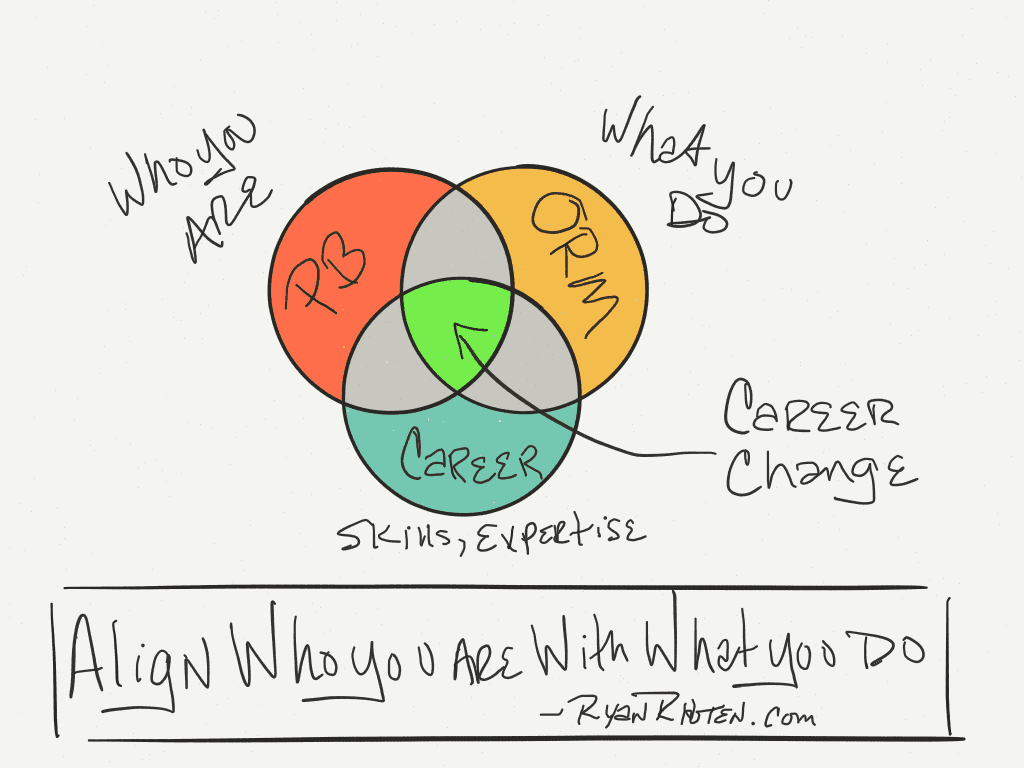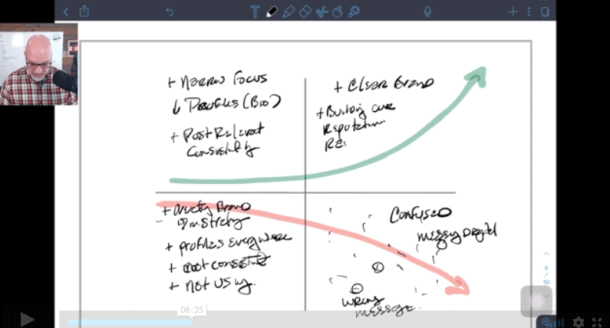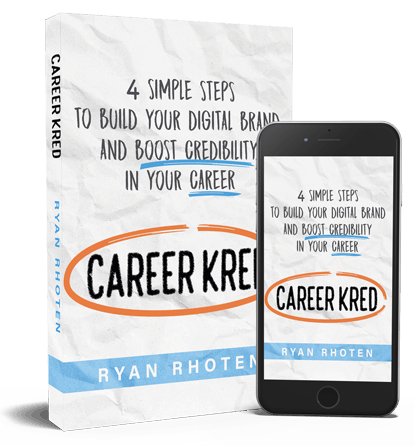I had a Twitter discussion with a podcast listener this past week. It started as a chat but moved to a direct message exchange.
The listener told me she enjoyed the podcast but had one nagging question she needed to ask. Her question was simple, but like most simple questions, it cut right to the heart of the matter.
As you know, I write and produce content on both the website and in the podcast on a number of topics, all of which swirl around the topic of personal branding.
This is clear to me because I create all of the content. However for this listener, it wasn’t as clear. Her question was:
“How do all of these topics relate?”
Great question and one that deserves an answer. You see on the surface, all of these topics may seem random and unrelated:
Personal branding, online reputation management, job search, networking, interview questions, branding, LinkedIn, Twitter, Resumes, recruiting, transferable skills, websites, and twitter chats.
But they aren’t. There is one common thread linking all of these topics of this blog and the podcast together.
The common thread; Career Change.

TYPES OF CAREER CHANGE
I wrote a post not long ago discussing types of career changes you can make within a company. While still valid, there are really two high-level types of career changes:
1 – Moving up within a corporation as an intrapreneur.
2 – Become an entrepreneur.
Intrapreneurs
Understanding your personal brand is a great thing for your career by itself. However, if you learn how to leverage your personal brand into your career, you can become an intrapreneur.
An Intrapreneur, as defined by dictionary.com, is an employee of a large corporation who is given freedom and financial support to create new products, services, systems, etc., and does not (typically) have to follow the corporation’s usual routines or protocols.
By knowing your brand, who you are at your best, your strengths and what you naturally gravitate toward, you can plot a career path that plays to your personal brand.
When you do this, you will choose positions which play to your strengths. This will allow you to function at a high level, which, over time will give you the “political capital” required within a corporation to become an intrapreneur as defined by dictionary.com.
Understanding your brand will also help you identify transferable skills required for new roles. These roles will, of course, require interviews and resumes.
As you move around in a corporation, at some point someone will challenge you saying you don’t have enough experience to make a particular move.
As much as this hurts to hear in many cases it’s correct. However, if you’ve been networking within the company you may find a hiring manager who will not factor in your lack of direct experience as much.
Remember:
[Tweet “Employers do not hire employees. They hire solutions to their problems.”]
Because you’ve been managing your online reputation, you've documented your career journey and insights via a website. You can use this to demonstrate your expertise by discussing the problems you've solved and how you solved them.
This may well be the advantage you need to open the door for you to make a career change with little to no experience.
I know this works because I’ve done it.
Becoming a freelancer/entrepreneur
You can also leverage your brand and make an 180-degree career pivot into a freelancing or entrepreneurial role. This step is not for everyone, but if you decide to take this path, the rewards can be very fulfilling.
To take this route, you will get started in the margins of your life, this includes early mornings, nights, weekends and maybe even an occasional vacation day.
Choosing this path will mean adopting the “learn as you go” methodology where you gain and implement knowledge as needed to move forward.
Gaining clients will require networking and every time you work with someone, whether paid or unpaid, you will gain experience and confidence in your area of expertise.
Each happy customer testimonial demonstrates your experience and helps build your portfolio of work.
You will highlight your portfolio on your website as social proof for potential customers. This will cause others to take notice.
The more people see your work, the more trust you will build with them. More trust equals a higher likelihood of observers becoming clients.
As you make this transition, you’ll need to pay particular attention to your brand and online reputation.
You’ll want to use Twitter, Twitter chats and LinkedIn to network and gain an audience of potential clients.
Eventually, you will build up enough influence, gain enough clients and establish enough authority in your niche to make the leap to full-time entrepreneur.
SUMMARY
All of these topics, personal branding, online reputation management, etc. are all tools at your disposal to help you demonstrate your expertise at your craft.
All of them will help you build authority as the Google of your niche. All have a common objective of helping you make the career change you desire.
My goal is to provide you with as many tools, tactics and techniques I can find to help you make a successful career change.
So whether you want to become an intrapreneur within your company or you want to branch out on your own, the choice to do so lies with you.
Fortunately, the steps to gain experience and ultimately trust in your new area of expertise are nearly identical regardless of which type of career change you choose.
Of course, none of this will matter if you decide not to start.





